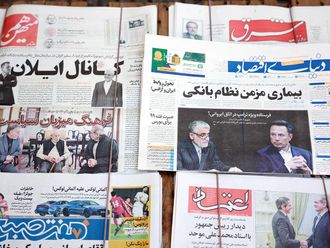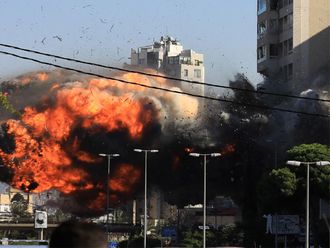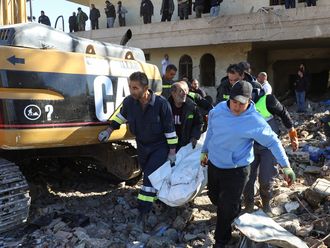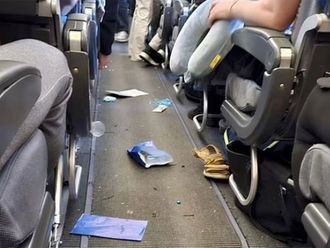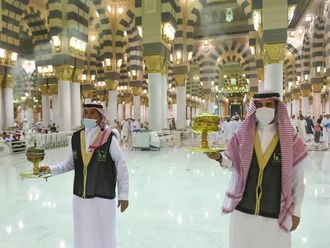Baghdad: Attacks targeting Shiites near Baghdad and a tiny Kurdish sect in Iraq’s main northern city killed at least 10 people on Saturday as Muslims marked Eid Al Adha, officials said.
The attacks, which also left at least 20 people wounded, were the latest in a series of bombings and shootings in the past week that have broken a relative calm in Iraq.
A magnetic “sticky bomb” attached to a minibus ferrying Shiites in the town of Taji, 25km north of the capital, killed at least five people and wounded 12 others, a security official and medics said.
Several officials said some Iranians were among the dead and wounded, but it was unclear how many. Differing tolls and details of casualties are common in the chaotic aftermath of attacks in Iraq.
The doctors warned that the toll could rise, and a police captain in Taji said as many as eight people had died in the attack, which struck at 9.30am.
Shiites in Iraq typically use the four-day Eid Al Adha holiday, which began on Friday, to either visit relatives, the graves of dead family members, or shrines of key figures in Shiite Islam located across the country.
In Mosul, 350km north of Baghdad, three attacks targeting the Shabak community killed five people and wounded 10 others, security and medical officials said.
In separate shootings, gunmen burst into the homes of Shabak families and killed a total of five people, and wounded four others, including young children, while a bombing in the compound of a family home wounded six.
“The security forces are supposed to be responsible for protecting all the citizens of Mosul,” said Qusay Abbas, a Shabak member of the provincial council of Nineveh, of which Mosul is the capital.
“This is a very troubling attack.”
The Shabak community numbers about 30,000 people living in 35 villages in Nineveh, and many want to become part of the autonomous Kurdish region of northern Iraq.
They speak a distinct language and largely follow a faith that is a blend of Shiite sect and local beliefs.
The community was persecuted under ousted Iraqi dictator Saddam Hussain, and after the 2003 US-led invasion of Iraq they were targeted several times by Al Qaida.
Levels of violence have declined dramatically in Mosul and nearby towns and villages, but the city that was once an Al Qaida stronghold is widely cited as one of the places where the network’s Iraqi front still holds sway.
At least 49 people have been killed since October 20, more than in the first 15 days of the month combined, according to an AFP tally.
Violence is down sharply across Iraq from its peak in 2006 and 2007, but attacks are still common, especially in Baghdad and north Iraq. At least 250 people have been killed as a result of unrest in each of the past four months.


